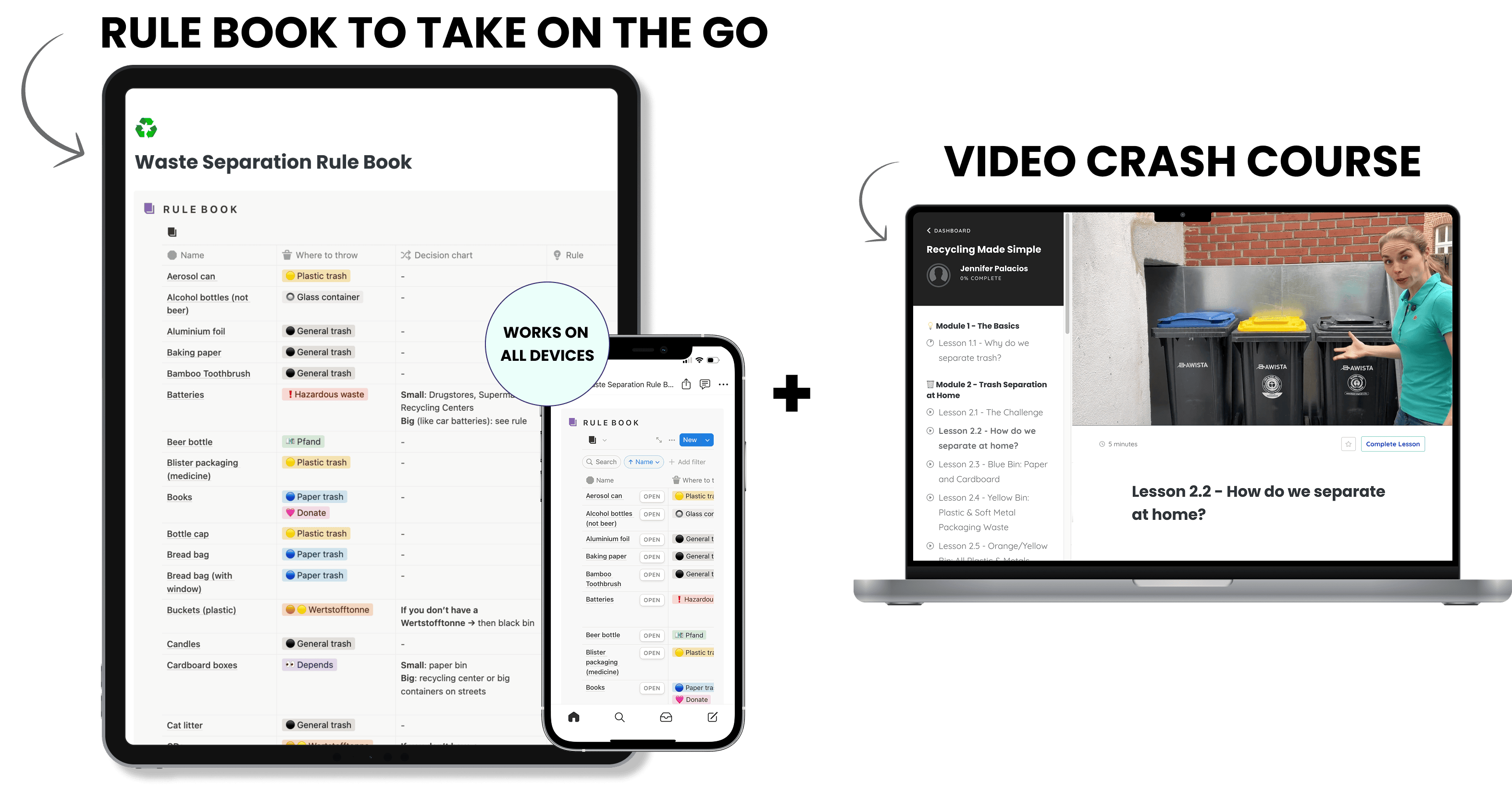Have you been frowned at by a German when crushing an empty beer can or throwing a water glass bottle in a glass container? Welcome to recycling in Germany and the bottle and can deposit (Pfand) system.
Read Our Related Guide
Since we are in Germany, things are never simple (no pun intended 😉), and there are, of course, different types of Pfand systems for different kinds of bottles.
With this article, we will make Pfand in Germany easy for you.
What is Pfand in Germany?
Pfand stands for deposit in German, and it refers to the bottle and can recycling system in Germany. When you buy certain bottles and cans in a supermarket or at a kiosk in Germany, you will pay a deposit (Pfand) on top of the product price. Once you return the empty bottle, you are refunded this deposit, and the bottles get recycled or reused.
Upon purchase, you can spot the Pfand on the shelve’s price tag, as it is listed separately from the product price.
The different bottle types and deposits in Germany
There are two different types of Pfand in Germany.
Multi-use bottles (Mehrweg)
These bottles are usually made of glass or thicker plastic and will be refilled up to 50 times before they get recycled. Of course, there are strict health regulations for the refilling process. Multi-use bottles are:
- Non-alcoholic glass bottles
- Beer bottles
- Thicker plastic soft drink bottles
- Yogurt glasses
The deposit for these bottles varies between 8 to 15 cents per bottle and you can identify them by the following logos or words such as ‘Pfand-Glas’, ‘Mehrwegflasche’ or ‘Mehrweg-Pfandflasche’.
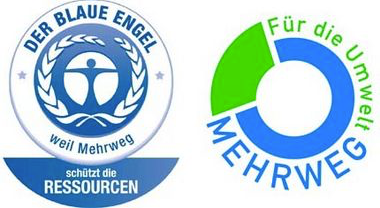
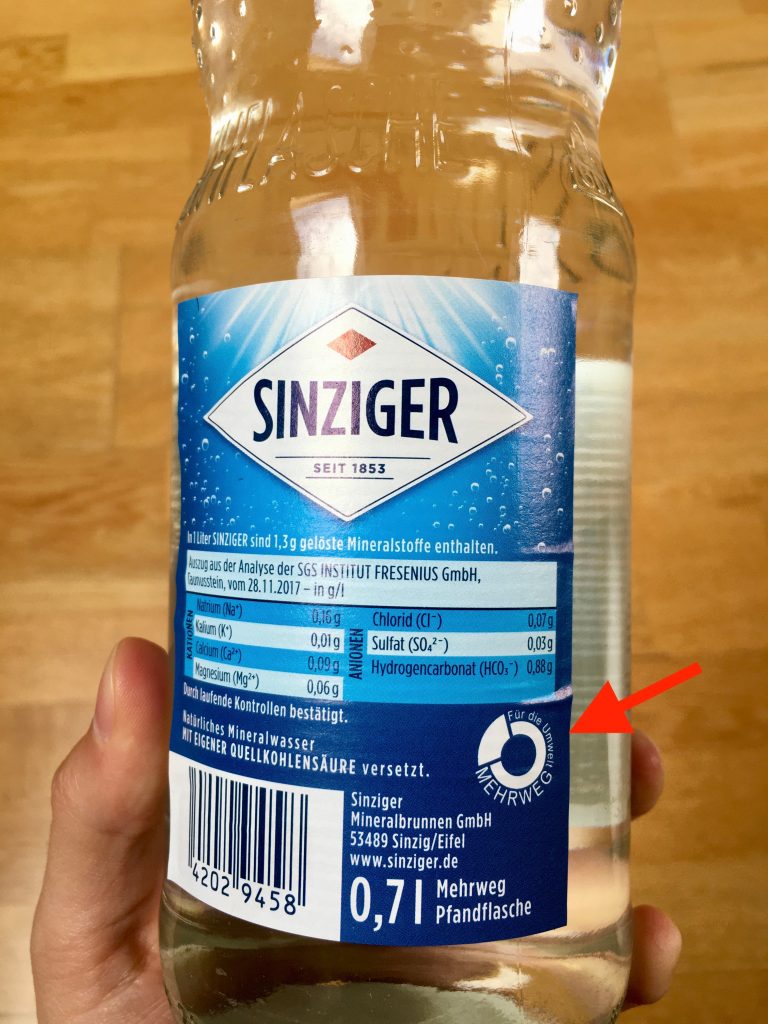
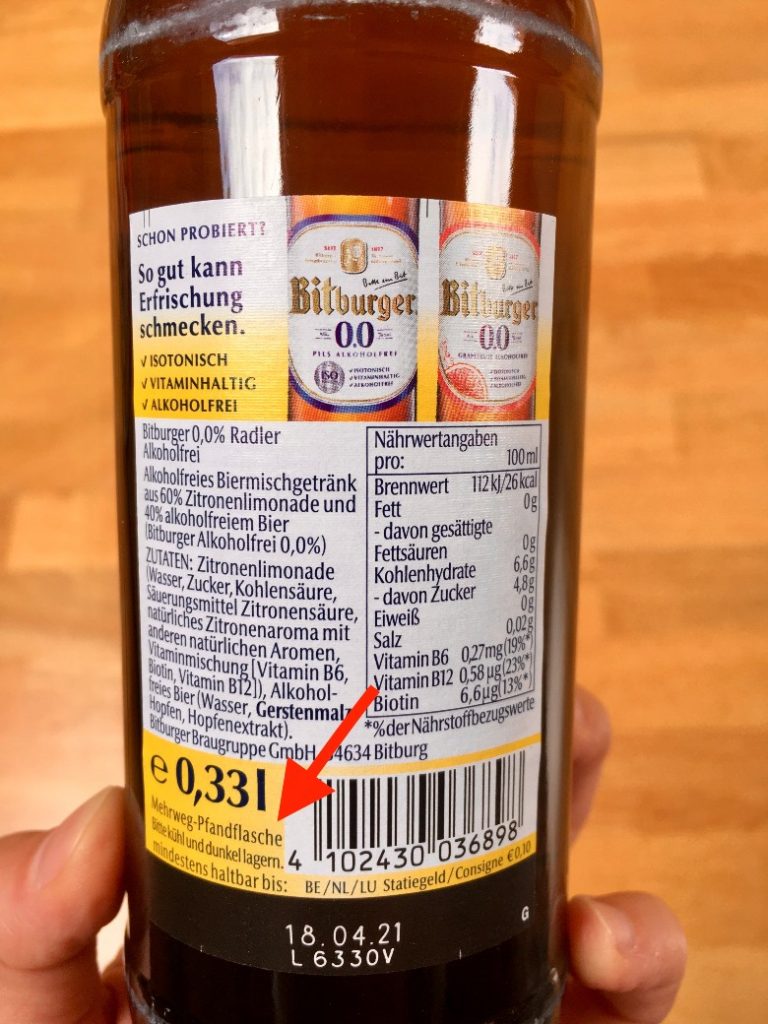
Single-use bottles and cans (Einweg)
These bottles and cans are only used once and are recycled upon return. Ecologically they have a bigger impact than multi-use bottles. Single-use bottles and cans typically are:
- Less stable plastic bottles
- Cans
The deposit for these bottles and cans is always 25 cents each and you can identify them by the following logos or words such as ‘Einweg’ or ‘Einwegflasche’.
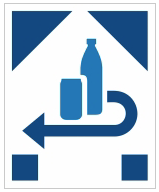
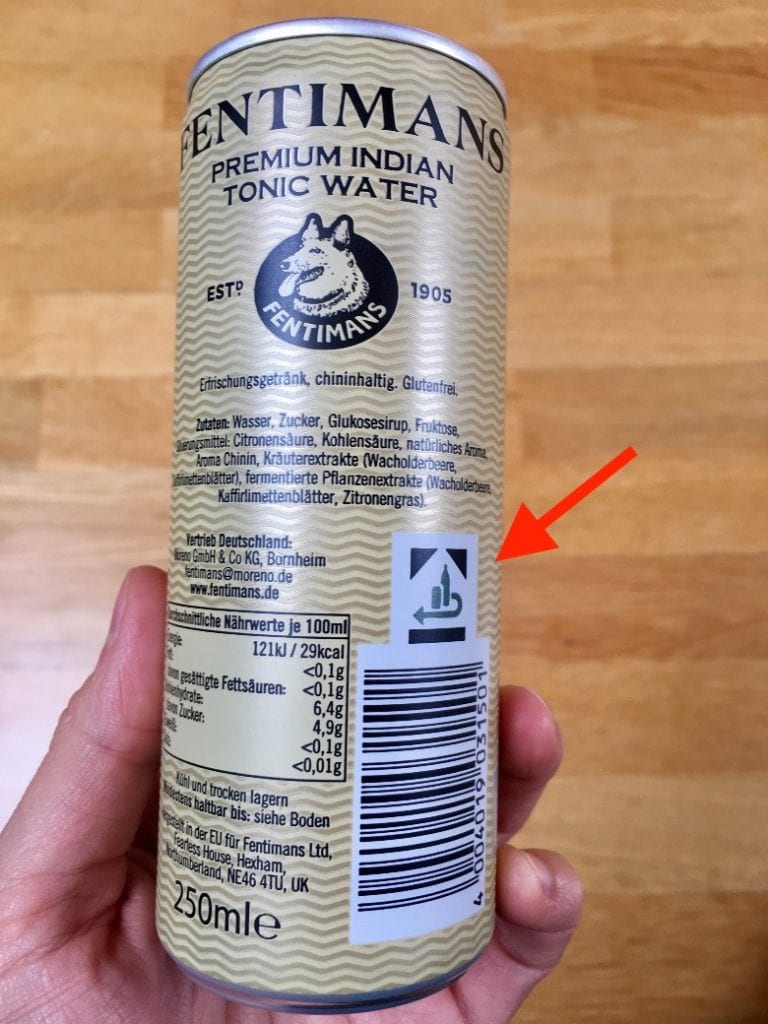
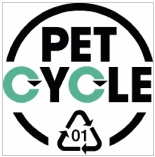
Bottles with no deposit
There are, of course, bottles with no Pfand as well. Bottles and cans without Pfand typically are:
- Wine bottles
- Spirit bottles
- Bottles from other countries
- Milk and juice containers (Tetra-Pack)
It would be best if you disposed of the milk and juice containers in your house’s yellow trash. To dispose of the bottles, you should use the glass containers on the streets in your neighborhoods.
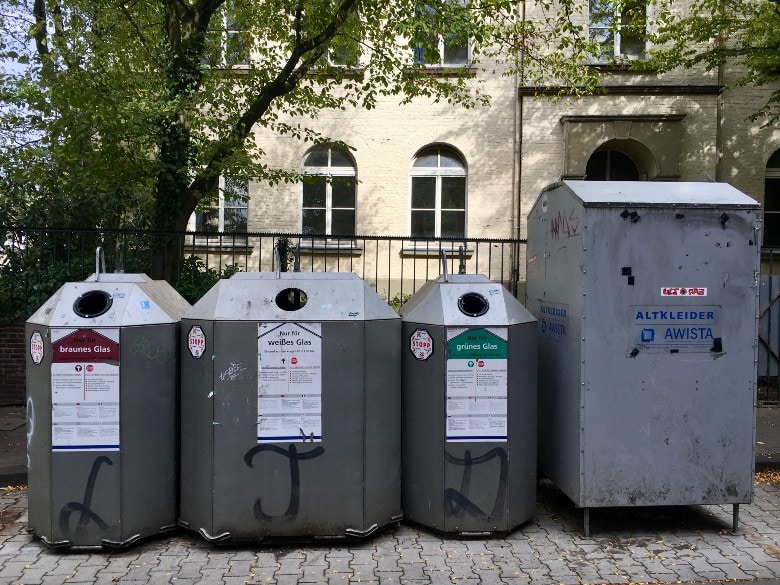
Beware, though, that you should not throw bottles in there on Sundays or a holiday, as these are official silent days. In Dusseldorf, where we live, we still do it 🤓 , and we never received a complaint. Once in Munich, however, I was shouted at by a nearby resident. The south is, in general, more conservative and proper.
Where to claim your Pfand deposit in Germany?
As a rule of thumb, you can return your Pfandflaschen where you bought them. Every shop selling bottles and cans with Pfand needs to accept bottle returns; however, only of those types of bottles, they sell. To return them, they cannot be crushed or without a label.
In real life this means, you can return your bottles at the following places:
- Beverage stores (Getränkemarkt): Germans love to buy their beer, water, and soft drinks in a crate (Kiste). You should definitely return the crate to a beverage store as well as any other multiuse-use beer or glass water bottles.
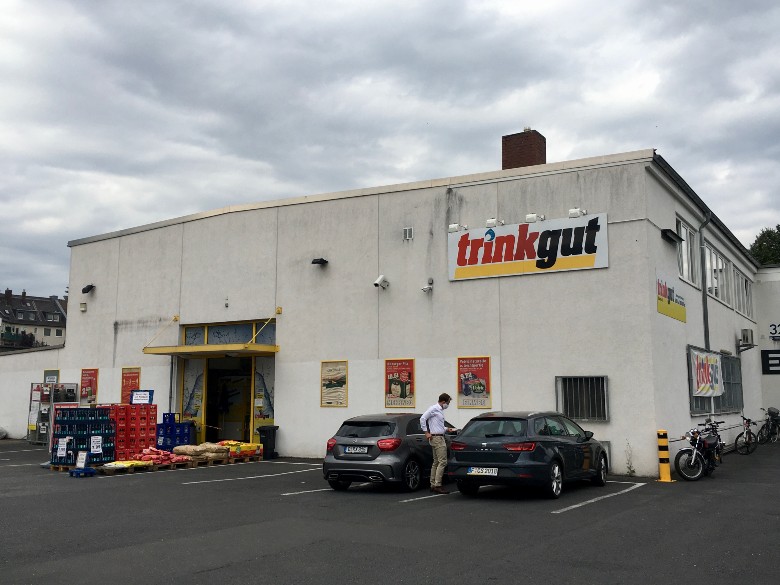
- Supermarkets: Most supermarkets have bottle return machines (Pfandautomat), either at the entrance, at the back of the store, or in a separate area in front of the store. Most of these machines only accept single-use plastic bottles and cans, as the machines crush them immediately. You will receive a coupon with your deposit’s value, which you can redeem at the cash register. The coupon is valid for three years, but we suggest using it directly for your next purchase.
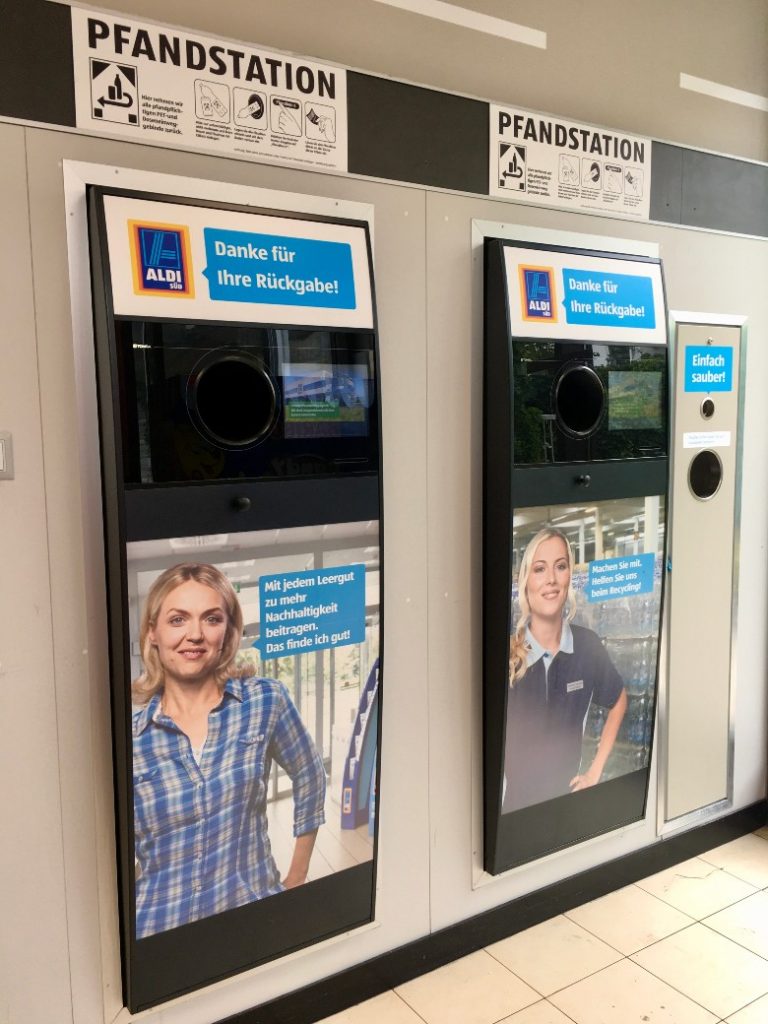
- Kiosks, Büddchen or Spätis: Germans usually buy cold beer at kiosks to chill with their friends in a park or by a river. The price is usually cheaper than in a restaurant or bar, but pricier than a supermarket. You can return your empty bottles at a kiosk, however, do not make it your habit of returning large stock of bottles at kiosks.
- The unofficial Pfandsammler: Officially, you should never leave any trash (including) bottles in any public space. However, in popular outdoor areas, it is common to leave bottles with deposits next to trash cans, as the German Pfand system has created an underground system of deposit collectors (Pfandsammler). These people traverse through the highly populated outdoor areas and collect the bottles; sometimes, they even wait next to you until you have finished your last Schluck (German for sip). You will be impressed by the highly sophisticated bikes or carts they have built to fit as many bottles as possible.
Not sure where a specific trash item belongs during your day-to-day life in Germany? Get our Waste Separation Rulebook to have the answer at your fingertips in English.
- Get clarity with our Waste Separation Rule Book - searchable on all devices
- Understand the rules with our Video Crash Course on all the ins & outs of waste separation in Germany
- Feel confident by using our practical tips to adapt no matter where you live in Germany.
Conclusion
We hope you have a better understanding of what the Pfand system in Germany is and how it works. Bottom line is, do not throw your money away, by putting bottles with a deposit in the trash. Make the extra effort to return them, where you bought them, and use the deposit coupon for your next purchase.
Further Reading
If you found this guide helpful and would like to learn about other unique things in Germany, please refer to our Living in Germany section.
